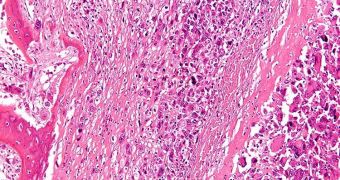According to the conclusions of a new study, it would appear that about 51 percent of the people who have had cancer at one point in their lives die from this condition. On the other hand, the paper also indicates that as many as 49 percent of former cancer patients die from other disorders.
These statistics indicate that scientists and doctors should perhaps start thinking about a more comprehensive approach to promoting the survival of former cancer patients. This array of conditions makes people more susceptible to developing other diseases.
The research is also interesting because the greatest fear of both oncologists and their patients is relapse. What the paper shows is that this occurs in roughly half of all cases, which is a much lower incidence than first suspected.
One of the main implications here is that people who survive cancer need to focus on keeping themselves healthy without aiming all their efforts at fighting just cancer. They need to be aware that other conditions are just as dangerous.
The new data were presented during a conference at the 2012 annual meeting of the American Association for Cancer Research (AACR), which was held in Chicago between March 31 and April 4.
Virginia Commonwealth University (VCU) Department of Epidemiology and Community Health assistant professor Yi Ning, MD, ScD, was the lead researcher on the study. He also holds an appointment with the VCU Massey Cancer Center, in Richmond, Virginia.
“We realized that the mortality rates for some types of cancer, such as breast cancer, had declined. Cancer survivors live much longer than they did several decades ago. So with this large group of cancer survivors, we need to pay more attention to cancer survivors’ overall health,” Ning said.
He and his team looked at 1,807 cancer patients, which were a part of the National Health and Nutrition Examination Surveys (NHANES) study. Most of these individuals suffered from breast, prostate, cervical, lung and colorectal cancers.
“After the detection of cancer, clinicians and cancer survivors pay less attention to the prevention and treatment of other diseases and complications. We shouldn’t neglect other aspects of health because we are focused on cancer and overlook other chronic conditions,” Ning concluded.

 14 DAY TRIAL //
14 DAY TRIAL //